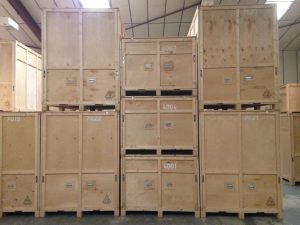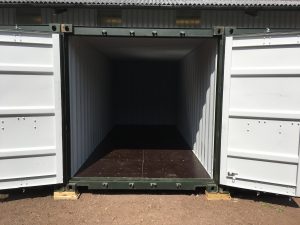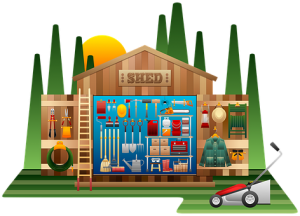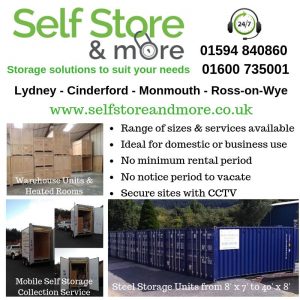Things to consider when renting a self storage unit.
As space is becoming a problem for many households and businesses, self storage has become the first choice for many. While there are several reasons why people use self storage, the most common include moving home or office, renovating, storing collectables, archiving and stock storage. It is even used by students and those who travel extensively as a safe haven for their belongings.
Before you rent a storage unit however, here are a few hints and tips to make sure you are getting the best value for money and making effective use of the space.
Research.
The first step to ensuring a smooth and successful storage experience is to plan everything as thoroughly as possible. Make sure you research and discuss your requirements with all local self storage companies and ask questions such as…
- Where are they located? (consider the overall travel time and fuel cost if you need to visit the unit for 1 or 2 items on a Sunday afternoon)
- What unit sizes are on offer?
- Are they suitable for storing your items (i.e. insulated, wind & water tight, vermin proof etc)
- What are the access hours?
- What security measures do they have in place?
- What is the minimum rental term?
- What notice period do you need to give to vacate?
- What contents insurance cover is in place?
Decide what size storage unit you need.
Discuss with the storage company what items you need to store and ask for advice regarding the correct unit size. It can be surprising what fits into a small space so why pay for a unit that is too large.
We offer a range of sizes starting from our smallest 7’ x 5’ x 4’ warehouse unit (ideal for boxes, books, files etc) through to a 20’ x 8’ x 8’ steel storage unit that can store the contents of an average 3-4 bedroom house. We also have heated storerooms if a temperature-controlled space is required. The larger the unit the more rent you pay so we always advise and encourage you to discuss your requirements first so we can offer you the most suitable and cost-effective solution to suit your needs.



Preparation and Packing.
- One of the hardest things to do when moving items into storage is to purge your items and get rid of anything you don’t need or like. We all keep items for the ‘just in case’ situation but why pay to store items you are never likely going to use or need again.
- Once you’ve decided what is to be stored, make an inventory and label all boxes as you pack – You never know if you will need one or two items after a few months of being in storage and who is likely to remember what was stored in which box!
- Pack as much of your smaller items as you can into boxes – strong, standard-sized moving boxes. This way, your belongings will be better protected, and you will be able to pack the unit more easily and efficiently as it is easy to stack similar sized boxes in the unit, creating a compact and tight load.
Using old boxes from supermarkets and retail stores is not a good idea even though it will save you money on packing supplies – these boxes won’t provide good protection to your items (as they will be weakened from previous uses) and won’t stack securely on top of one another (as they will be different sizes and shapes), making it more difficult to load the unit and increasing the risk of damage to your belongings.
- Make sure the items you intend to pack in the unit are clean and dry. Although all of our units are clean, dry and ideal for storing most items, any moisture and dirt that is already on your belongings can have a detrimental effect over time. It is therefore crucial that every item is clean and completely dry before being packed in the unit.
- Reinforce the bottoms of the boxes with packing tape, fill the cartons to their capacity (so they don’t cave in when stacked on top of one another), fill any empty spaces in the boxes with cushioning materials to prevent the items inside them from shifting and coming in contact with one another during transit, and seal the cartons well.

- Don’t forget – Label the boxes with their contents and wrap fragile items in packing paper and bubble wrap and make sure they’re well cushioned in the moving boxes. Mark the boxes that contain breakables and delicate items as “FRAGILE” and “HANDLE WITH CARE”
- Pack heavy items in small boxes and lightweight items in large boxes. Be careful not to overload the boxes and not to make them too heavy to lift
- If possible, disassemble larger furniture pieces (tables, desks, beds etc) to make them easier to store and less vulnerable to damage.
- Wrap furniture, appliances, and other larger items in moving blankets to protect them against dust, dirt, moisture, and damage.
- Use mattress covers to protect your mattresses if needed.
- Protect TV screens with foam sheets or large pieces of cardboard, wrap the entire TVs in several layers of bubble wrap, and pack them in their original boxes or specialized TV boxes if you have them.
- Protect pictures and mirrors with cardboard pieces, wrap them in bubble wrap, and pack them in picture boxes.

Once your ready to move your belongings into storage, it’s also important to think of the process so you maximise the space used and make sure you have what you need first stored at the front of the unit.

- Start at the back of the container and pack your items in vertical layers that reach up to the roof. The goal is to create a series of tiers (floor to ceiling walls), so you can maximize the available space.
- Start the first tier by placing some large, sturdy pieces of furniture (safely wrapped and padded) flush against the back wall of the container. Put boxes and items of medium weight on top and finish the layer with lighter things.
- Use some large and heavy boxes as the base for the next tier and stack lighter items on top. Keep alternating between solid furniture, heavy boxes, and other sturdy items as bases for the tiers. Stack lighter things on top of the bases and make sure the tiers reach to the top of the unit.
- Work on one tier at a time, so you don’t need to climb over your belongings as you pack.
- Make the tiers as tight as possible to maximize the space and prevent items from shifting over time – use small, pliable items (pillows, plush toys, bags of clothing, etc.) to fill any gaps between the items in a tier, put some heavy boxes in the cavities underneath desks, chairs, and other similar pieces.
- Mix boxes, furniture, and other items in a tier – it will be easy to build an entire tier by stacking boxes from floor to ceiling, but it will be impossible to make a neat, secure tier with irregularly-shaped items only. Therefore, you’re advised to use both boxes and oddly-shaped items in each layer, so each tier can be finished off correctly.
- Put items you won’t need first in the back of the unit and items you will need easy access to at the front. It is a good idea to load non-essential furniture, things from storage areas, specialized items, boxes filled with out-of-season items, and other rarely used items first and pack bathroom items, kitchen items, some clothing and bedding, and other essentials at the front so you can get to them quickly and easily if needed.
- If there remains some room between the tops of the tiers and the ceiling, you can use it to pack some thin, oddly-shaped items that fit the space (like golf clubs and fishing rods, bed frames or headboards and folding chairs, etc).
Once you have packed the unit correctly, simply lock it back up and you’re now ready to access what you need, when you need without too much fuss.
If you require any advice regarding storage then don’t hesitate to email or call us 7 days a week – we’re always happy to help.
Why Use Self Storage?
As space is becoming a problem for many households and businesses, self storage has become the first choice for many. At some point, many of us will need a self storage unit whether it’s for home or business. The fact that it’s safe, convenient, reliable and affordable makes it even more attractive.
While there are several reasons why people use self storage, the most common include moving home or office, renovating, storing collectables, archiving and stock storage. It is even used by students and those who travel extensively as a safe haven for their belongings.
Most Common Reasons People Use Self Storage?
Not everyone has the luxury of having enough space at home to keep all of our belongings safe. This is particularly the case if it involves larger items that fill up open space very quickly. From small to medium businesses, households, students and travellers, here are some of the most common reasons why people use self storage and why you should consider it too.
Home Clear Out

We are connected to our stuff whether we like to admit it or not. People, in general, are reluctant to get rid of things even if they no longer use it and that’s where a home clear out is so important. Along with self storage, you can even keep things “just in case” like furniture or toys to help the kids when they eventually enter the expensive housing market.
Moving House
People often have to find a temporary residence when moving to a new house which means space could be an issue. If there’s nowhere to safely store your furniture, clothes, sporting equipment and garden tools while waiting for the new property to become available, self storage is the answer. It can help keep you organised by storing things temporarily and simply collecting it when everything is ready. It certainly beats the alternative of selling old stuff and buying everything new.
Home Renovations

With the rise in housing costs, many people are renovating instead of moving as it is more affordable. While it may be cheaper, renovations and extensions can be time-consuming but you can always rely on self storage to keep things safe while builders are in-and-out. It’s the ideal solution to store your valuables, keep the house clear of clutter and worker safety.
Downsizing Home Or Moving To A Smaller Office

Self storage is also widely used when moving into a smaller home or office space. If there are things you cannot take with to the new premises, keep them in self storage until a later date. You never know what will happen as you may want to relocate where the extra furniture or equipment could come in handy.
Baby On The Way
A baby can change all the dynamics of your current living situation as it often requires completely clearing out a room or making the home safer. This means packing away all the old stuff to make space for the cot and other baby essentials. If you have a spare bed that is ‘baby-ready’, simply put in storage along with the desk, chest of drawers and cabinets. When the little one turns 3 or so, you can collect and refurbish the room accordingly.
Students Going Home For The Holidays
Students will inevitably collect excess items when they are at university. Things like television, computer, sofa and bed to mention a few. If it’s not their final year and summer holidays are around the corner, they will not bring everything home just to take it all back the next term. If that is the case, consider renting a storage unit close to your university accommodation. It is a very small price to pay for absolute convenience and peace of mind over the summer holidays.
Taking A Gap Year

Today, many students take a gap year and travel before they enter the world of adulthood and work. Self storage is perfect for this as there may not be enough room at mum and dad’s place for all the extra stuff. This means they have nowhere to store their belongings from the time they leave university until they get back and move into their own place.
Working Abroad
For those who have been offered the opportunity to work abroad on an extended contract, look no further than a self storage unit. If you have a property, you will likely rent it out for additional passive income until you return and would prefer to keep your valuables safe.
Empty Nesters
There comes a time when all the kids have left, either for university or moving into their own place. Things change after every move as the eldest who leaves at 18 didn’t take his bed and desk which the youngest of 12 could use one day. To save space until then, or if you want to turn the newly emptied room into a study or crafts room, put everything in storage. Long-term storage contracts are typically cheaper than short-term agreements so you’ll save even more.
Garden Furniture, Tools & Equipment

Seasons dictate the type of garden furniture, equipment and tools we use and knowing what to do with everything will help. Summer furniture, toys and tools can go into the shed or garage but space could be limited thanks to the new table or lounger you bought. Considering that you are not going to use any of these items for a few months, why not put it all into self storage?
A Change In Relationship Status
A breakup or divorce is never a nice experience especially when partners were living together. One, or both, has to move out which means making arrangements to store their belongings until life gets back to normal.
Family Bereavement
Nobody likes talking about it but the sad fact is that many people will inherit a home with all its contents following a family bereavement. While some may be lucky enough to hold onto everything, others need to distribute the inheritance or pay the associated costs which means the house must be sold. Secure storage may not be a top priority at this point but it can really help when dealing with the aftermath of losing a relative or partner.
What About Business Storage?
We’ve already mentioned that businesses use self storage when they downsize but what are the other reasons? Safe and accessible business storage is essential and we are not talking about keeping files in lofts or garages either. Documents, stock, equipment and even vehicles need a safe place without taking up all the room at the office.
Fact is, a business storage unit can benefit all types of companies as it helps to minimise overheads. After all, a self storage unit with all the necessary room is much more affordable than renting additional warehouse space.
How Do Companies Use Business Storage?
Storage units can help ease some of the stresses that accompany a growing business. Truth is, retail business owners, artisans, e-commerce brands and other entrepreneurs can greatly benefit. Here’s a quick look at the types of businesses that use self storage.
- Publishers and Book Dealers
- Construction, Landscaping, Roofing and Painting Companies
- Electricians and Plumbers
- Retail and E-commerce Businesses
- Restaurants and Catering Companies
- Sales and Servicing Businesses
If you need any advice on how self storage can help you at home or work then please do not hesitate to contact us by phone, email, website enquiry form or Facebook Messenger.

We’re available 7 days a week.
Tips for Moving House – Help Reduce the Stress
Moving to a new house is probably one of the most stressful things you can do in life and, whilst the thought of settling into your new home is exciting, the actual packing and planning beforehand aren’t. However, moving home doesn’t have to be a complete chore if some simple tips are followed.

Seek a helping hand
Decluttering can be carried out for a number of reasons such as getting the house ready to impress a buyer or simply packing away your non-essential belongings to reduce the workload on moving day. Or do you have a gap between your move-out and move-in date and need a place to store all your things for a few days or weeks? These items will, of course, require a new, temporary storage space and if friends or family can’t help with a spare room or garage then using a local self storage company may be the solution you need.
Protect your possessions

Plan in advance and purchase plenty of strong boxes, bubble wrap, tape and blankets prior to packing….these are your belongings after all. Make sure you individually wrap fragile items such as glassware, photos, pictures, plates etc before packing them in a larger box. If you are thinking of placing your belongings into long term storage then make sure everything is clean and dry so they don’t become mouldy during the months (or years) in storage.
Pack smart, Pack safe
When it comes to packing your items, make sure you think logically about how you’re going to go about it. Always pack heavier items in smaller boxes as it’s easier to carry. Always think about how many books you stack in one box as these quickly add up to a lot of weight and may lead to a bad back or broken box when trying to lift it. Use larger boxes or bags for essentials such as duvets and pillows as these are light and easier to stack and store when contained in a box or bag. It may seem obvious to many but always label each box or bag as you will forget over the weeks or months when you suddenly need some items and can’t remember where it is…leading to wasted time and effort trying to find the right box.
Where are you going?
It’s easy to get caught up in the excitement of changing postcodes but don’t forget to tell your bank, insurance company, building society, credit card providers and favourite charities before you go. After all, you don’t want any important documents getting sent to the wrong address.
And, just in case the bank doesn’t change your address, don’t forget to redirect your post with Royal Mail as a fail safe.
‘Go to’ essentials
Prepare a bag of essentials which should be the last thing you load into the car. This could include a change of clothes, toothbrushes, snacks, kettle, tea & coffee, mugs and sugar. Perhaps a first aid kit, tool box and toys to keep younger ones entertained when unpacking.
Treat yourself

A big move is hard work and stressful so stick to your deadlines but also allow yourself some down time to enjoy a well-earned rest. Enjoy a cup of tea and biscuit during the day and why not order in from your new local takeaway in the evening. After all, there will plenty of time to cook in your new home. If you’re not sure of what takeaways are around then a quick Facebook post in the local group will always bring suggestions and recommendations for you to try.
Tips to planning a home renovation or extension.
If you love the location and feel of your home, but need more space to grow as a family, then adding an extension or renovating internal rooms may be the most attractive solution compared to moving. Extension or renovation work can be an exciting project that will breathe new life into your home and give you that much needed extra space to live and grow. It does however come with several logistical challenges as the work starts, and perhaps continues for a few months, until the work is completed. As with all projects, the key is in the planning.
Here are a few tips on how to effectively plan your home renovation to make it as stress-free as possible.
- Section the project
To begin with, start small and divide the project up into parts so that it does not become one daunting project. Start with one area at a time, prioritising those that are most in use. That way, you can tick those off the list first so that you could start to use them as quickly as possible if you chose to remain in your home during the renovation. This way you can also close off the renovation work in the evening or weekends and relax in comfort rather than live in a building site for weeks or months, which can soon become stressful.
- Work inside out
If you are hiring professionals to do structural or more technical changes, you’ll note that they usually start to work from the inside out. If you are doing a lot of it yourself, start inside the walls with plumbing and electrical and then move outward until you get to the more cosmetic changes, like paint and wallpaper.
- Leave it to the professionals when needed
If the changes you are planning to make are more technical or advanced, just remember you may have to live in this space until it is completed. If you are choosing to stay at home while renovating, this means that you will need to live in a space of disruption. Hiring a professional team could mean that the renovation is done quicker, and you can get your home back to normal.
- Make space for the renovation
During a renovation there is a lot of dust and materials that end up lying around as the project goes through the various phases. To avoid damage to your household items, why not consider storing them with a local self-storage company while the work is completed. Not only will it keep those items protected, but it will also allow for a faster project as the contractors will have an empty space to work with.
If you are renovating, extending or simply decorating your home, and need a secure space to store your household (or business) items, then please don’t hesitate to contact Self Store & More on 01600 735001 or 01594 840860.
We can even collect direct from your door using our Mobile Self Storage service.
Self Storage Hints and Tips – A Short Guide
PACK YOUR ITEMS WELL
- Using proper packing materials such as corrugated boxes, bubble wrap, packing tape, air pillows etc will maintain and protect your goods whilst in transit and storage.
- Fill boxes to capacity, and pack heavier items into smaller boxes. Partially filled boxes and cartons may tip over or collapse.
- Pack books flat, not on their spines.
- Label or number your boxes, this makes unpacking easier when your self storage needs are over. Not to mention that finding that particular box in your room will not be such a daunting task!
- Make a comprehensive list of your stored items and keep this safely at home
- Remove any batteries
- Use wardrobe boxes to help your clothes keep their shape
- Remove all moisture from any item going into storage. Make sure fridges and freezers are fully defrosted
PLAN YOUR STORAGE SPACE
- Put the boxes or items that you will need to get to the most often, near the front
- Stack similar sized boxes together to maximise space
- Stack chairs seat to seat with a protective layer between them
- Leave fridge and freezer doors open to allow the air to circulate
- Avoid putting heavy items on top of soft furnishings – these should be near the top
- To aid ventilation, try not to lean or stack furniture against the outside walls
- Cover your goods with dust sheets to protect from dust
To find the storage solution to suit your needs, don’t hesitate to call us on 01600 735001 – We’re here to help.
What is Mobile Self Storage and how can it save you time, money and effort?
You may be aware of standard Self Storage and may have used it before. Self Storage involves you usually hiring and fuelling a van to transport your items to a storage space where they are kept until you want to access or collect them. We also offer this service for those that have their own transport and that works well for a lot of our customers.
But what if you don’t want to hire a van or wish to make numerous trips back and forth using your own vehicle? This is where our Mobile Self Storage collection service helps save you time, money and effort as we will deliver one or more of our standard size warehouse storage units direct to your door aswell as provide FREE assistance to help load your belongings into the unit. This also allows to make sure your belongings are secure ready for transportation.
Our Mobile Self Storage service offers the same benefits as Self Storage – free access to your items as many times as you like and flexible storage terms but with the added bonus of transport. Not only does this mean there’s no need to hire and fuel a van but your items are not double handled as, once they are loaded into the storage unit, they stay there until you visit our secure warehouse facility to collect or we return the unit back to your property. This also means that you only pay for the storage space you use. Instead of hiring a storage unit that you may only partially use, we can book you as many units as you need until the move is complete. If you’re not sure how many units are required we will be happy to discuss your needs prior to booking or you can simply decide on the day and we will invoice you for the correct number of units once you’ve finished.
10 Benefits of Mobile Self Storage
————————————————–
1. Storage unit delivered direct to your door.
2. Available 7 days a week.
3. No need to hire a van.
4. No need for a removal company.
5. No need to make numerous trips in your own car.
6. FREE assistance to help load your belongings.
7. Reduce the risk of damage – only load once.
8. FREE access to your unit whilst in storage.
9. All units remain securely stored inside our warehouse facility.
10. Located adjacent to the A40 – within easy driving distance of Monmouth, Ross-on-Wye and the Forest of Dean.
For further information and a video of how this service works, please visit www.selfstoreandmore.co.uk/mobile-self-storagehttp://www.selfstoreandmore.co.uk/mobile-self-storage.